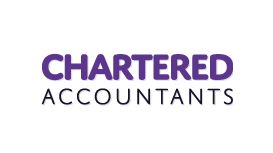One major development in the area of business ethics and environmental protection is the Global Sustainability Disclosure Directive (CSRD). Objective behind this regulation is to improve and harmonize how businesses throughout the European Union disclose non-financial information. Businesses who want to succeed in the ever-changing world of ecology and ethical behavior must comprehend the standards of the “CSRD Requirements” .
What is meant by the CSRD?
The Non-Financial Reporting Directive (NFRD), which was first implemented in 2014, has been updated with the csrd requirements. A few big businesses were forced by the NFRD to provide information about their effects on society and the environment. The NFRD, however, was criticized for being unclear and inconsistent, which prompted the creation of the CSRD. The purpose of the CSRD is to ensure that participants have access to accurate and comparable information by establishing more comprehensive and uniform reporting criteria.
The CSRD purview:
Increased coverage constitutes one of the major changes resulting from the CSRD. Only sizable public-interest organizations with more than 500 staff were expected to file reports under the NFRD. This bar is lowered by the csrd requirements, which mandates the disclosure of information regarding sustainability by all big businesses and all firms published on publicly traded markets (except from listed microenterprises). This move will result in a large rise in the number of businesses that must report, increasing market openness.
Essential Conditions for the CSRD
1. Comprehensive Reports on Sustainability
Corporations are required by the CSRD to disclose comprehensive information about their governance, social, and environmental (ESG) consequences. Data on utilization of resources, utilization of energy, greenhouse gas emissions, and social and worker-related problems are all included in this. Businesses must also disclose the sustainability strategy, including ESG-related mitigation procedures of their business model.
2. Dual Subjectivity
Double materiality is an important notion in the CSRD. Accordingly, businesses are required to disclose not just how sustainability-related concerns affect their bottom line but also how their operations affect the surroundings and society. This dual viewpoint guarantees a more thorough comprehension of a business’s sustainability performance.
3. Guidelines for Reporting.
The European Sustainability Reporting Standards (ESRS) are made available through the CSRD. Established by the European Financial Reporting Advisory Group (EFRAG), these standards offer comprehensive guidance about the information that businesses must reveal and the format in which it must be presented. The ESRS seeks to guarantee comparability and uniformity of sustainability reports among various businesses and industries.
4. Evaluation and Certification
In order to improve sustainability reports’ reliability, the CSRD mandates that the information be subjected to independent assurance. This means that in order to confirm the environmental report’s correctness along with comprehensiveness, an outside auditing firm will examine it. Establishing stakeholder trust and guaranteeing the accuracy of information released are the goals of this criteria.
5. Online Reporting
Furthermore highlighting the value of digital reporting is the CSRD. It is mandatory for businesses to create sustainability evaluations in a readable by machines digital format. This strategy promotes transparency and empowers participants to arrive at better choices by making reported data easy to obtain and analyze.
Adoption Schedule:
The CSRD will be carried out in stages, with the first group of businesses having to start reporting in accordance with the new rule for the 2024 fiscal year. Smaller businesses will have more time to comply because the demands for reporting will be gradually implemented throughout the ensuing years. Companies are able to adjust to the new criteria and make sure they have the required systems along with procedures in place thanks to this progressive deployment.
Conclusion:
An important step forward for business environmental reporting, the CSRD encourages greater responsibility and openness. Companies can improve their sustainability performance, acquire the trust of stakeholders, and get a competitive advantage in the market by comprehending and adhering to the CSRD criteria. The road to environmental reporting could prove difficult, but the rewards greatly exceed the drawbacks, opening the door to a future that is more robust and sustainable.
Read More Articles: San Diego: A Cultural Mosaic.












